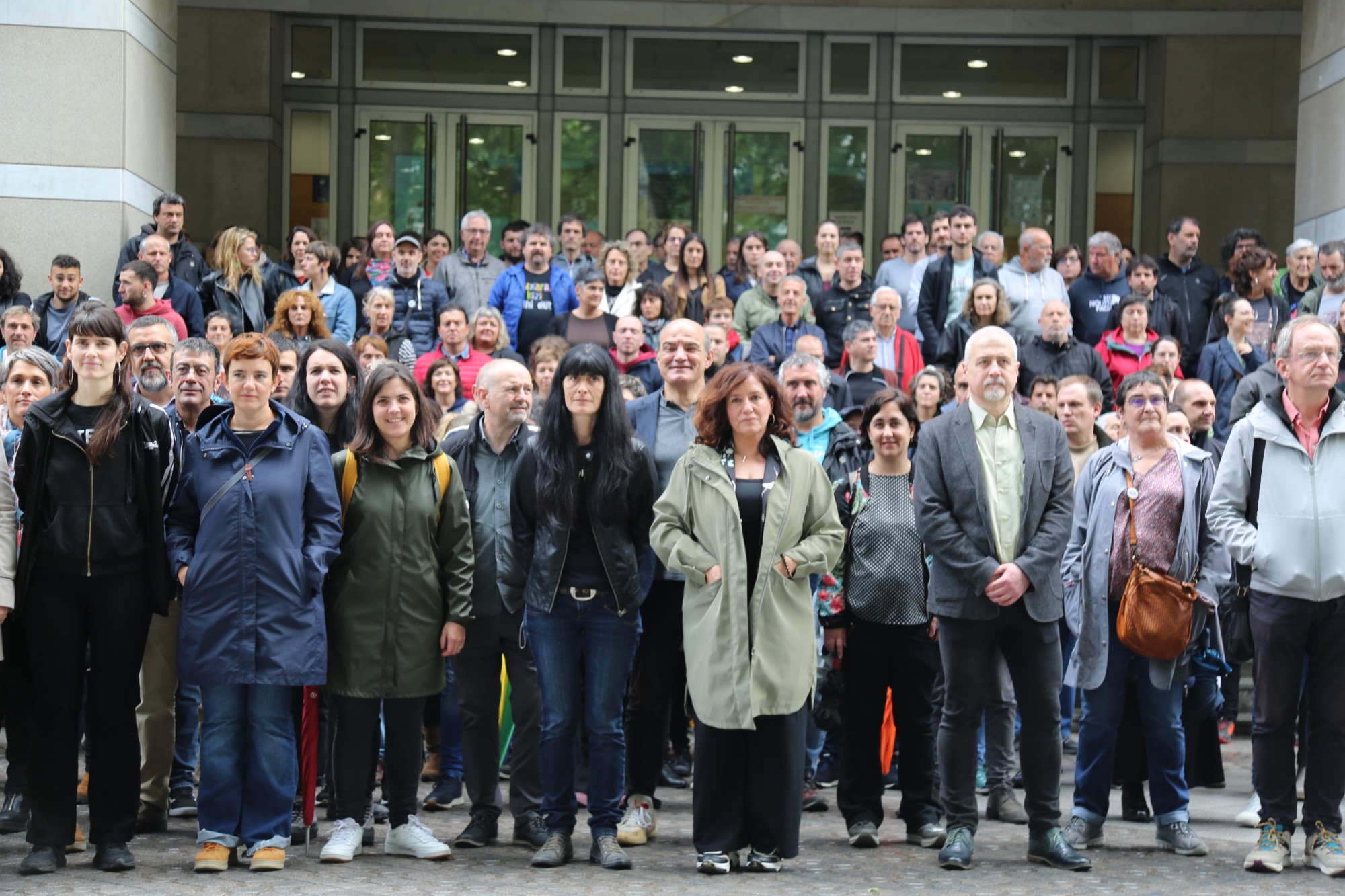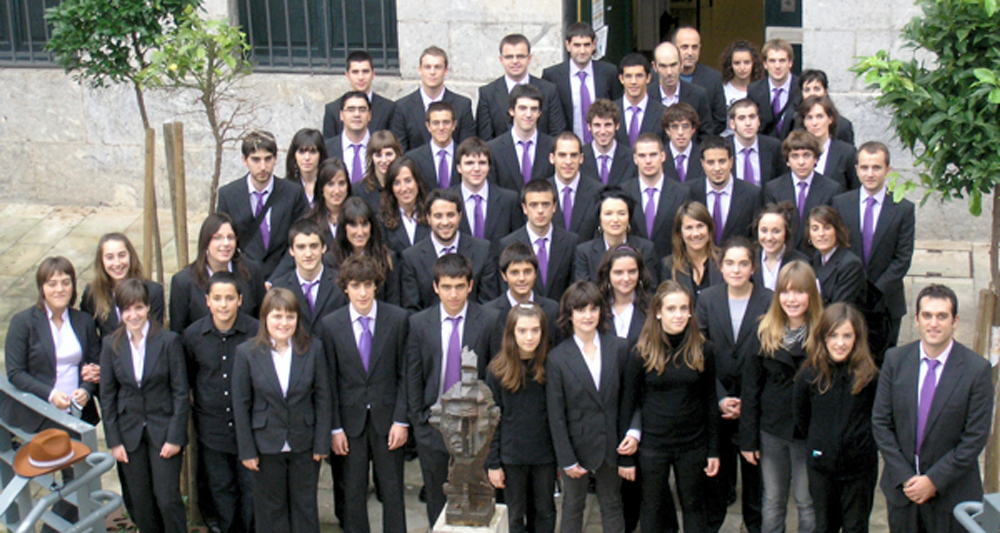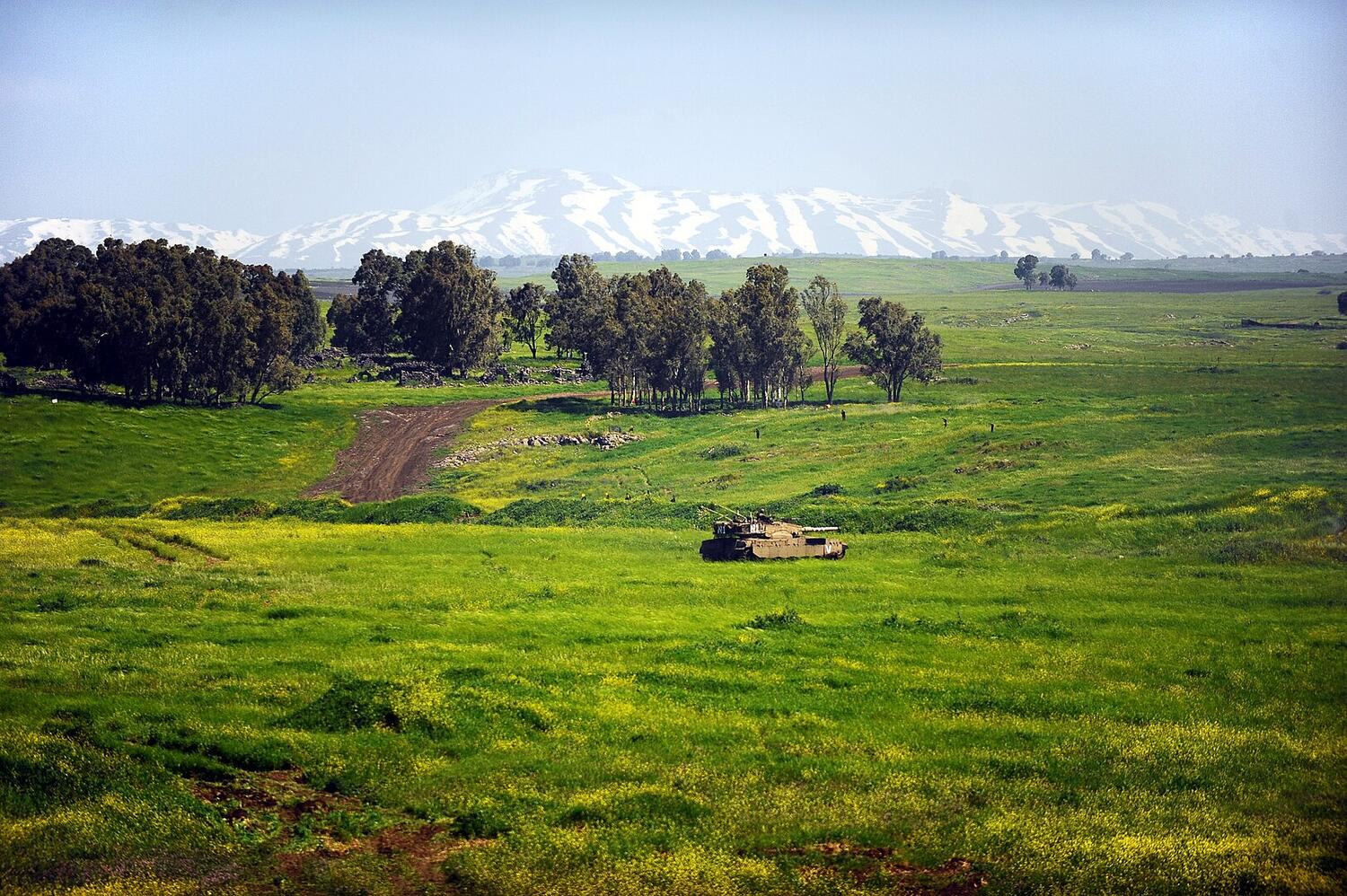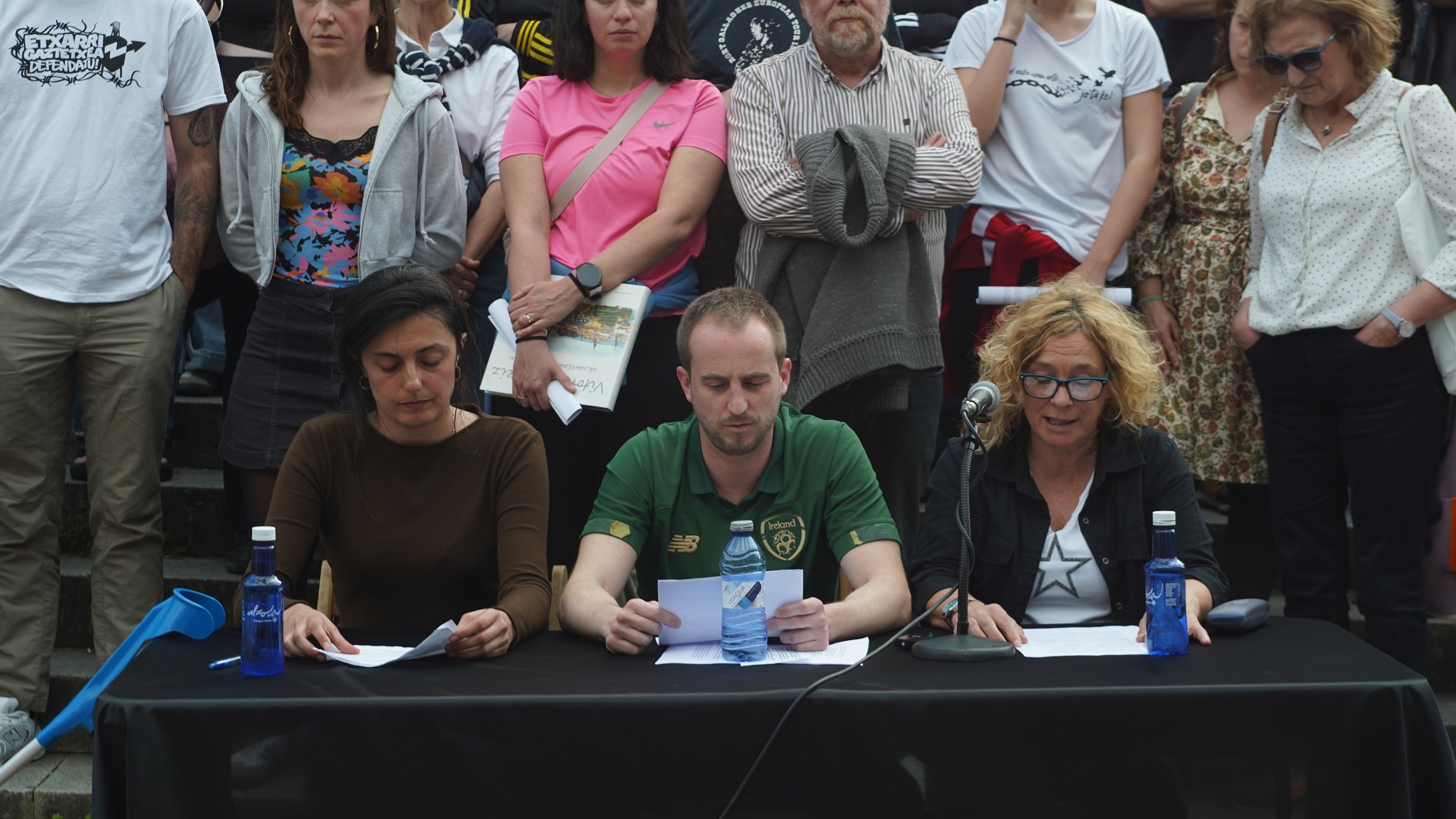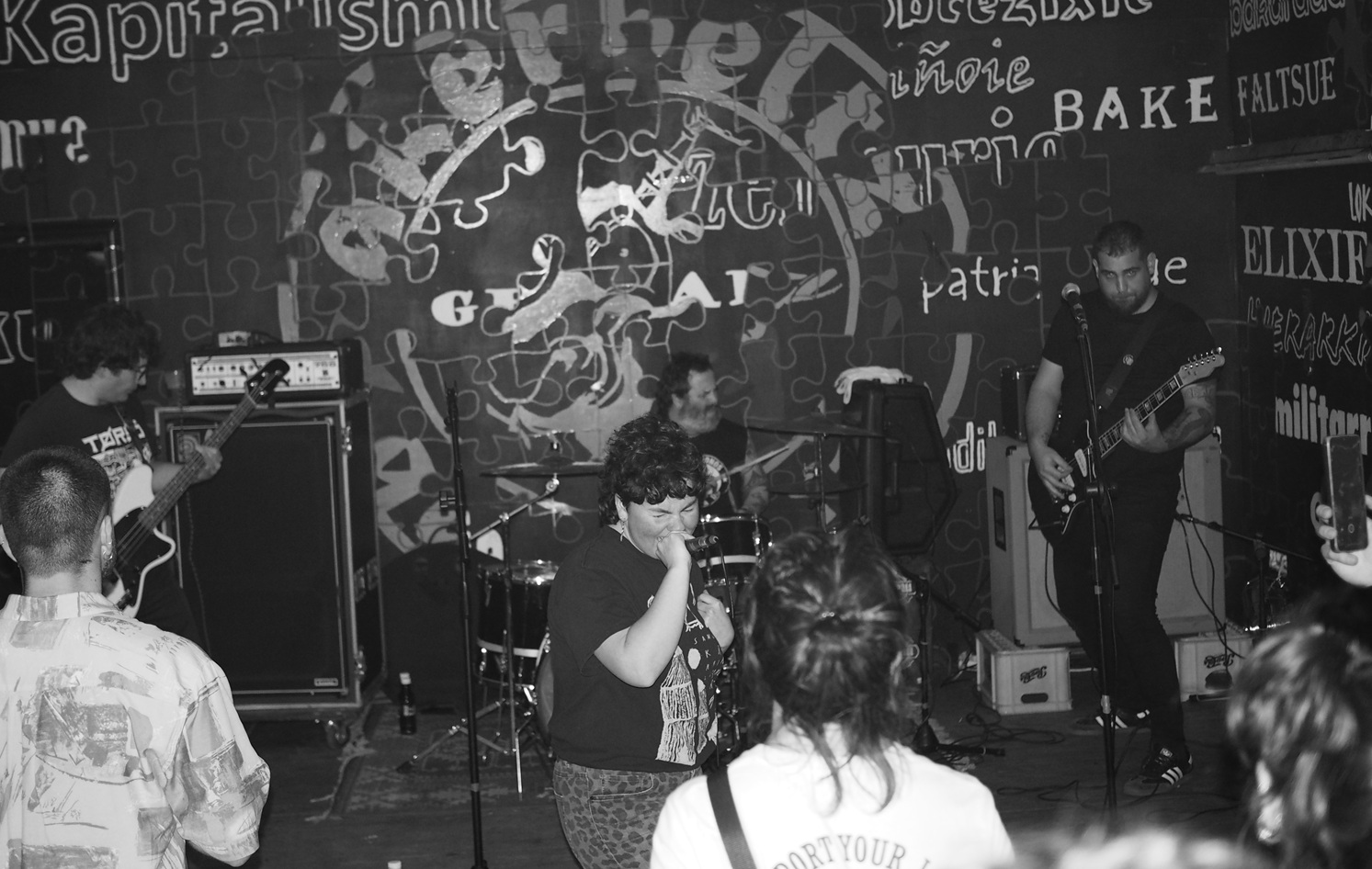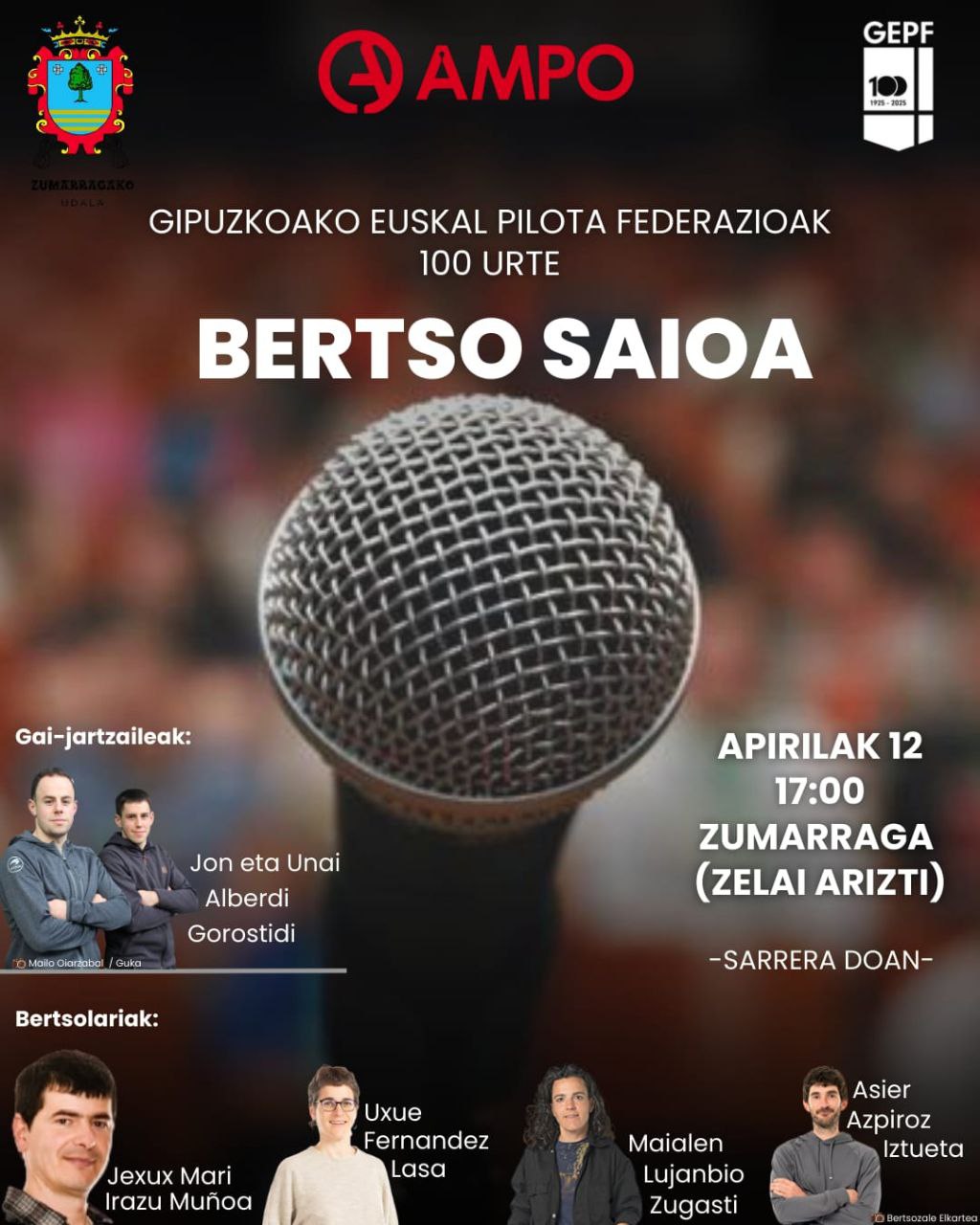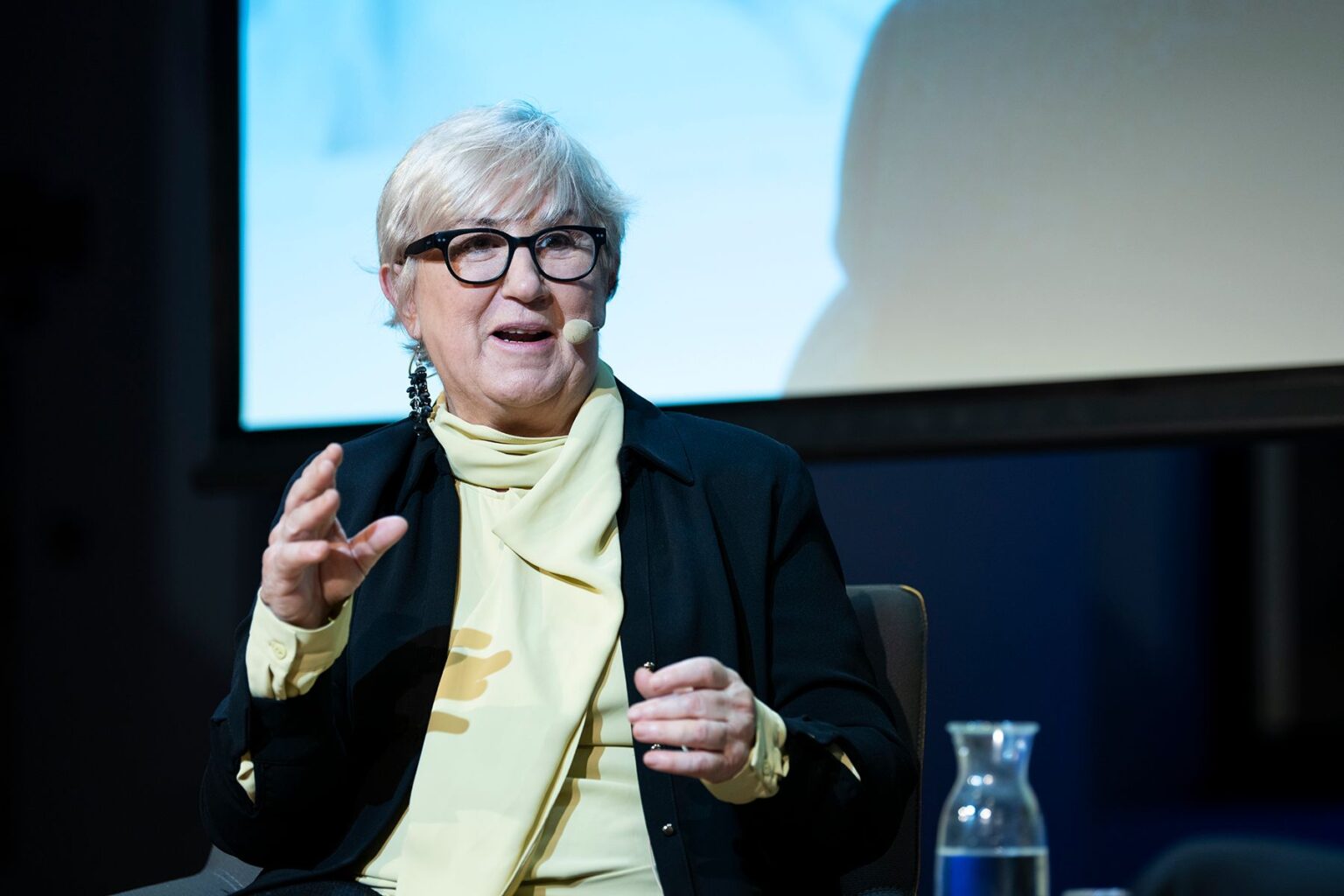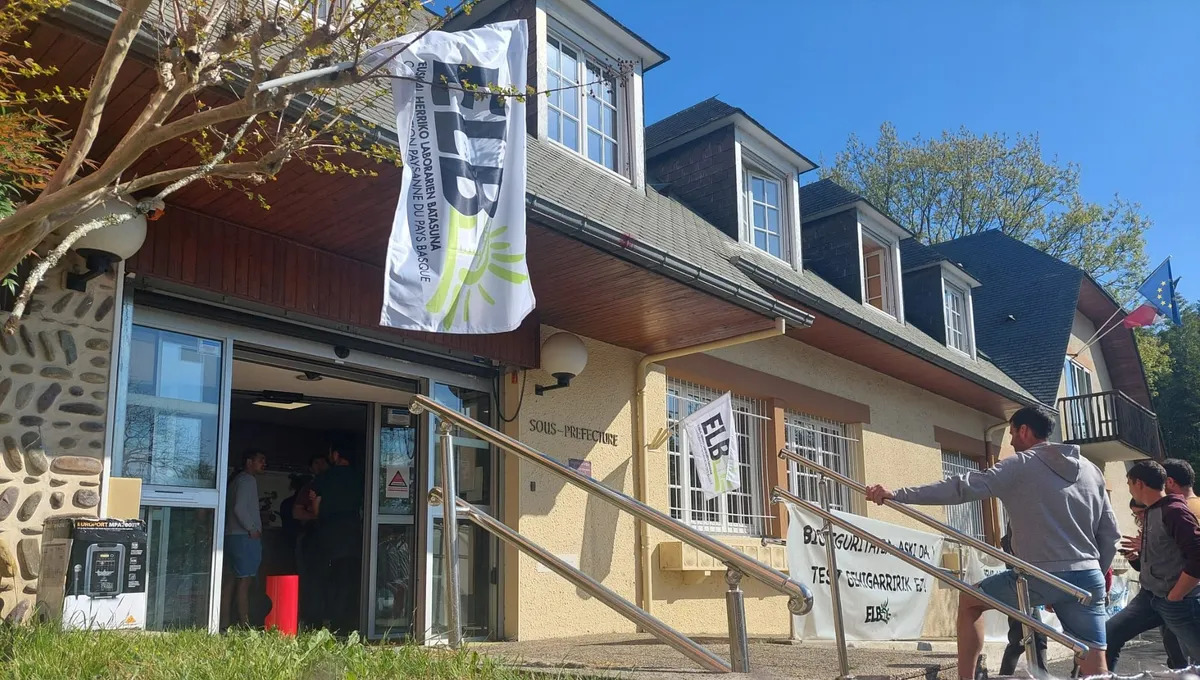"What civil society has invented must remain in the hands of civil society"
- 1976, Vitoria-Gasteiz, a working-class neighbourhood in Abetxu, designed specifically for immigrants. The young people who had no other perspective than the factories in the area once showed their theatrical work and liked it, and they showed it again and again, and many times later, until they made the theater their means of subsistence. The theatrical work has become an initiative of the civil society of Vitoria-Gasteiz more than thirty years ago.
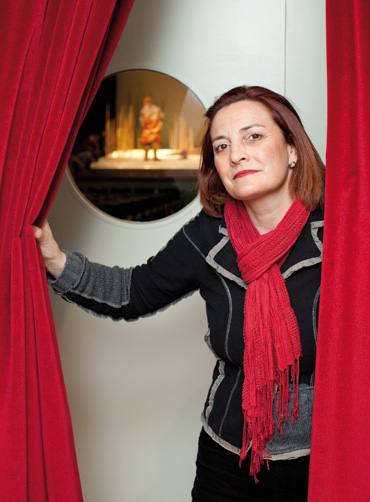
How many years of theatre?
The company was founded in 1976, we are in 2011, so 35 years in the company. Except for the first two, the rest, professional. Our whole life started at a very young age. I was 14 years old, I took matters out. In our neighborhood, Abetxuko, there was one, Ubaldo Fernández, who started writing a story: He named it Eternal Paradise Without Equal (Eternal Paradise Without Equal), using the famous motto of a song by Manolo Escobar. The story sought to explain what was happening in a working-class neighborhood, such as Abetxukon itself, to show the difficulties that 14-year-old boys and girls had in building the future, which was a difficult time, and that these young people had to finish the then OHO or compulsory education and start working. This show also meant that there was another way. These are not matters of the time of Moses, but those that we have lived through. At that time in the neighborhood, some families were trying to get their children to learn, while others needed a 14-year-old job award to thrive. And then there was the theater group, the neighborhood theater. That's the name of the neighbor. There is an author, Jerónimo López Mozo, who wrote about this type of theater and named it like this: “Theater of neighborhoods and theater of peasants”, and refers to that experience of Abetxuko: he defines it as a popular theater, a social theater that pretends to be a mirror of the life of the place, shaking the consciences of the people of the place. We went from one neighborhood to another. To Pilar, Txagorrázquez and the rest of the churches.
Which way did you go from there, which way did this theater group go?
They're both coming together. When I turned 18, and there the rest of the group, we had three or four years of experience, the theater of the neighborhood was developed, there were several awards received here and there, and then the participants of the group decided to consider theater as a profession. A lot of nonsense, because we didn’t have any training or referents, except for everyone, the recently created professional team from Vitoria-Gasteiz. The time came when we had to decide what to do in this life and we decided that we wanted to do theater. We were lucky because at school, social workers and teachers began to prepare recreational activities for local boys and girls, including attempts to find appropriate forms of expression for children who had difficulty expressing themselves. And they suggested that we hold a children’s expression workshop in Abetxuko. Depending on the ages, from the smallest to the largest, we formed three groups. Well, that time marked us like in the irons to work professionally in theatre, in theatre for children and young people. We could have decided to work for adults, but we took the children’s job and moved on. Sometimes it seems to be a minor art, which those who are not able to do anything else do, but it is not so. We made the decision with our own enthusiasm and began to study, not only as actors, performers, directors... but also in preparing ourselves in the field of theatrical pedagogy.
In what way?
We had two great teachers. One, the theatre teacher, Miguel Garrido –who died– came from Germany to work with Vitoria All. He has marked our work, in the path of clown, and in precision. Without precision we would not have reached this point: without effort and work there is nothing, neither in the theater nor anywhere else. Having learned from that teacher, we are rehearsing even when we are not doing the performances, because the vision is living matter, it moves, it transforms. In the way the child is cared for, the inspector needs constant care. This is a legacy we have inherited from Master Miguel Garrido. We also had another teacher, a Canadian, Gisele Barret is currently a teacher at the Sorbonne in Paris. He was working on the pedagogy of expression, which also marked us profoundly along the way. At first we all did everything, but in 1983, some decided that they wanted to go deeper in terms of interpretation, while others decided that they wanted to go deeper in the pedagogical aspect.
Did the company split up?
No, without separating the group, we welcomed the fact that each one of us went deeper into his own path, according to his own desire. That's when I stopped working as an actress, getting on stage. I thought that people and the stage didn’t lose much, that there were more capable people. Instead, I felt that I could advance in the pedagogy of expression, that I could do it in that sense, cultivating the relationships between school and theater, and also working with families.
In these thirty years, what is the main incident that you have in the achort?
1993 was a very difficult year, for example. Some of the people who worked in the group decided to leave it in order to work on other projects. The current is the economic crisis, and the economic crisis was also the one of the hour, a very difficult time. After the Olympics in Barcelona, also after the Expo in Seville... the money from the culture entered the big events and we made the pot afterwards. It was a time of emptiness. We hit the bottom. The crisis, as usual, helped us to grow, we decided to start doing tasks based on contact with people, talking to the City Council of Vitoria-Gasteiz about a simple demand: “We don’t want money, we don’t want anything, unless we let the Bernat Etxepare Theater open, let it work with teachers, and respond to the demand that exists in the city, because we believe that there is demand, but no offers like that. We just ask you to let us do the experience.” And the City Council approved it, and we made the first experience, and a huge success. From there, we were able to develop the project and entered into a permanent relationship with the City Council. And it is not an exaggeration to say that it has no parity in the Spanish State.
You're talking about theater programming...
It's more than programming, philosophy. It's not just acting programming. We do a lot of programming activities, such as “The Art of Being a Spectator”. His intention is to deepen the formation of the viewer, we want him not only to pass a beautiful space, but also to leave a mark, because we believe that art is an important thing. I am often called here and there to talk about the Vitoria model. Yes, in many places organizations call on private actors to organize such and such performances, etc., but it rarely happens that public and private actors converge in favor of a common goal. Our company is a private company, we have been forced to do so – if we were in France, we would be a cultural association, to the best of all – but we offer a public service. We do public work because our goal is for children to have a relationship with the performing arts. It is up to the people’s organizations to achieve this goal, because it is a right of the child, because it is reflected in documents that define the framework of coexistence, whether constitutions or other laws. The municipality is responsible, among other things, for children to learn to read and write, so that they can exercise their right to knock on the door of art and culture. It is our responsibility to work with organizations to achieve these goals. We are working on this through a strong relationship between the City Council and our company: we carry out school programming in the Bernat Etxepare Theatre and we combine it with the family theatre that takes place in the Old Theatre, as well as a theatre of small size and another space for the little ones, called Zoroleku. The theatre group Paraíso will be in charge of this; the Councilor for Culture of the City Council, who is responsible for the theatre network... Who does their part to bring children, young people and the performing arts together. This work in pairs is not easy, because in our country there is not much habit, here it is private, and the public is public, and even where to base the agreements, the legal instruments are not bapo-bapos, we have no tradition, because since the transition there has not been much time yet.
How did you find this path?
When we decided to become professionals there was no Internet. We had newspapers and magazines and mail, and we got some news from here or there, and we knew what or what they were doing abroad. It was time to open up and we felt the need to go outside. And we went to the School of Expression in Barcelona, where we studied, and we found out that there were people like us in France and elsewhere who were doing, or thinking about doing, what we wanted to do. In France, there were not only drama centres for adults, but also for children. In Belgium, there were groups of great recognition working with performances, as well as social work, attending schools and neighborhoods, etc. In Italy, they were experiencing a theatrical revolution as a result of the educational movement of the late 70s... It seemed to us that they were doing very important things in the world that we had to do ourselves. He taught us the way. I think Ovidio says: “You don’t want to be known.” We wanted to know the experiences, we also wanted to know them, and we wanted to show them and do them in our country, Vitoria-Gasteiz, because according to its characteristics, all places are different. We started on the road and the Bernat Etxepare Theater has been a great starting point, essential to get here. And now we are in another era, as we are designing the Theatre Innovation Centre for Children and Youth in Vitoria-Gasteiz. It will be built next to the Civic Center of Zabalgana and will project the work we have done so far into the future. “We have done it”, not only by the City Council, not by the Paraiso theater group as such, but by the teachers and the various collaborators and all together. The project has been implemented by the city, civil society and institutions, and it is our job to take care of it and, if necessary, increase it.
This kind of work and collaboration is difficult...
You don't know that well! Kar, kar, kar... Since we said “We want the theater, because there is a lot of demand!” we had the support of the City Council thirty years ago! The project has been endorsed by the municipalities of one type and another and the current City Council has taken another step. Collaboration is difficult because we need legal instruments to carry out projects in the cultural field. And it is easier to invent these tools for the football field than for the culture. The question we are asking right now is: “How to advance our current theatrical model in this time of crisis, how to tighten the relationship with the spectator, with the collaboration between public and private entities?” because we are not antagonistic, but complementary to each other. This is the challenge for us, to invent tools to sew collaboration between civil society and institutions. If the agreements and agreements were not made, the City Council would reign, and all its other servants, who paid for it and we did the work, would be nothing else. That’s not the way, I think. What civil society has invented must remain in the hands of civil society; the City Council has a pyramidal structure and cannot and must not reach everywhere, it must preserve and support civil society projects so that the services that must be offered to citizens are offered, through its own instruments or through others, but always without renouncing the work of civil society.
Pilar Lopez Lopez (Burgos, 1962), Bilbon zen 4 urte zituela, eta 6 urterekin heldu zen familia Gasteizko Abetxukora. Paraiso antzerki taldearen sortzaileetakoa, haur eta gazteentzako antzerki lanak sortzeko lanean ari da, 14 urte zituela agertokira igo zenetik. Dibulgazio lan beldurgarria egin du Gasteiz inguruan, eta hainbat erakunderen elkarlana ere sustatu. Arabako hiriburuko Bernat Etxepare antzokiko Antzerkia Eskolan programazioaren arduradun da, eta Bilboko Mitusu aretokoa. Emanaldiez gain, ikuslearen formazioa du helburu, eta horixe gogoan hartuta ari da beti lanean. Haurrei begira, Gasteizko Nazioarteko Antzerki Jaialdiko Haurtxoak proiektuaz arduratzen da, baita Txoroleku izeneko aretoaz ere. Teatro Paraiso antzerki taldearen zuzendari ez ezik, Kulturaren Euskal Kontseiluko kide, TE Veo elkartearen presidentea, INAEM Espainiako Arte Eszenikoen eta Musikaren Institutuko Antzerki Kontseiluko kidea eta Small Size Europar Sareko kide ere bada Pilar Lopez.
“Krisia?... Lanean ari gara, krisiak bazterrak latz astinduagatik ere. Banketxeek kredituak emateari utzi diote, berankortasuna eguneroko ogia da… eta, ataka honetan, gogor saiatzea besterik ez dago. Egoera oso da delikatua –baita ikuspuntu etikotik begiratuta ere–, baina ez dugu atzera egingo. Zenbait talde desagertzeko arriskuan egon litezke, ez egitura handiena dutenak, ez txikienak ere, tarteko tamaina dutenak baizik, garatze sasoian harrapatu dituelako krisiak, ez aurrera ez atzera”. Garai latzak, Dickensen liburuaren izenarekin bat.
Goizez Nafarroako zubirik esanguratsuenak jendez beteko ditu Sorionekuak dinamikak. Arratsalderako mobilizazio herritarra deitu dute Iruñeko Kostarapea parketik Alde Zaharreko Takonera parkeraino.
EAEko udal legearen euskararen arloko zenbait artikuluren aurkako epaia eman zuen Justizia Auzitegi Nagusiak 2023an, eta orain Gorenak berretsi du. Eusko Jaurlaritzak ez du garaiz aurkeztu epaiaren aurka egin zezakeen helegitea.
Lekeitioko Udalak jakinarazi du bandako zuzendariak tratu txarrak eman izana jaso dutela, hainbat testigantzaren bidez. Udalak azaldu du, Eusko Jaurlaritzaren aholkuak jarraituta, hainbat pauso eman dituztela, besteak beste, zuzendariarekin hitz egin, eta testigantzak jaso... [+]
Zibilentzat antolatutako txangoak igande honetatik aurrera egin ahal izango dira, printzipioz astebetez, eta egunero bi ateraldi antolatu dira. Sarrerak berehala agortu dira.
Until now we have believed that those in charge of copying books during the Middle Ages and before the printing press was opened were men, specifically monks of monasteries.
But a group of researchers from the University of Bergen, Norway, concludes that women also worked as... [+]
Florentzia, 1886. Carlo Collodi Le avventure de Pinocchio eleberri ezagunaren egileak zera idatzi zuen pizzari buruz: “Labean txigortutako ogi orea, gainean eskura dagoen edozer gauzaz egindako saltsa duena”. Pizza hark “zikinkeria konplexu tankera” zuela... [+]
Ospitaletik irten eta berehala prentsaurrekoa eman du Iker Aranak, Errekaldeko gaztetxearen aurrean. Gaztetxearen desalojoan ertzainek "neurrigabeko indarkeria" erabili zutela salatu du, eta salaketa hurrengo egunetan aurkeztuko du.
Aposapo + Mäte + Daño Dolor
Noiz: apirilaren 5ean.
Non: Markina-Xemeingo Akerbeltz Gaztetxean.
---------------------------------------------------------
Erosketetarako orgatxoa barazkiz beteta egin dut gaztetxerako bidea, eta haiek mozten eman dugu iluntzea... [+]
Gipuzkoako Euskal Pilota Federazioak 100 urte betetzen ditu aurten. Ospatzeko antolatu dituen ekitaldien artean dago apirilaren 12an Zumarragan egingo den bertso saio berezia. Pilotari bat arituko da gai-jartzen, eta pilotarekin harremana duten Gipuzkoako lau bertsolari kantuan... [+]












